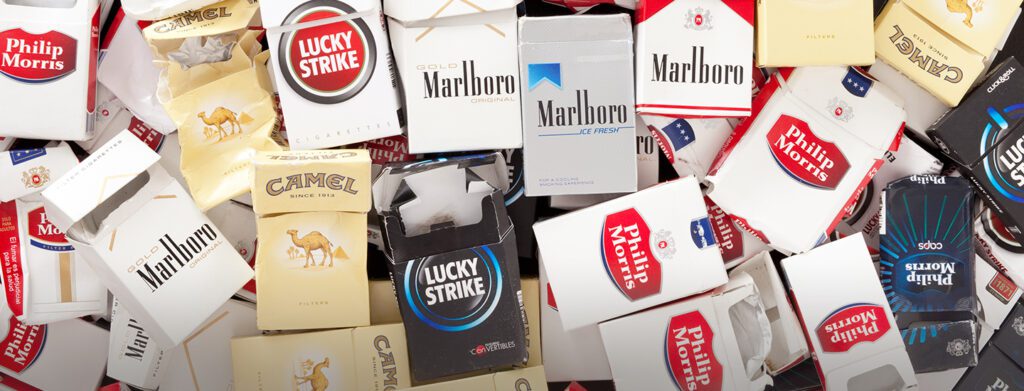Author
Legislation has now been passed to introduce Regulations which will standardise cigarette packaging in the UK, following Ireland and Australia’s decision to do the same. The changes will mean that from May 2016, all packets of cigarettes will be uniform in size, shape and design, displaying a graphic health warning across a significant part of the packaging. Only the brand name (which must be included in a standard font) will distinguish these products.
Whilst health organisations have supported the decision, the tobacco industry has strongly criticised the introduction of generalised packaging which it considers will undermine brand identity and is an unnecessary attack on tobacco companies’ use of their intellectual property (“IP”).
This decision does raise difficult IP and competition law issues. In just over 12 months’ time companies will be forced to abandon the distinctive ‘get up’ of their products and conform to homogenised requirements. Arguably, this will prevent tobacco companies from using validly registered trademarks to differentiate their products from those of competitors. Given the size of the tobacco industry, investment into branding is extensive and any restriction on this is likely to cause significant losses to businesses.
There has been concern that the decision to adopt standardised cigarette packaging may harm the UK’s strong reputation for IP protection. The UK is currently ranked second in the world for IP protection according to the ‘Global Intellectual Property Center International IP Index’ but there are fears that the UK may lose a point from its trade mark score as a result of the Regulations. Losing a point on this index would also lead to the UK losing its current second place position. This was the case for Australia when it implemented the same policy in 2012.
Similarly, there has been unease as to whether these Regulations may cause a ‘snowball effect’ on other industries considered to promote ‘unhealthy’ products. Are alcohol producers next? It remains to be seen where the line will be drawn.
Further to this, the Government has not been clear on whether it will implement a compensation scheme for tobacco companies who will be deprived of their ability to fully exploit their IP rights as a result of the forthcoming Regulations. Prior to ratification by the House of Lords on 16 March, British American Tobacco (‘BAT’) had threatened legal action if the Regulations were approved. BAT stated that its claim would rely on the violation of UK, European Union (‘EU’) and international laws, including EU trade mark laws and World Trade Organisation rules.
The reaction of BAT and other members of the tobacco industry serve as an important reminder of the importance of brand power and the value of IP to businesses. It will be interesting to see if the Government does offer compensation and formally recognises the financial loss resulting from an imposed restriction on a company’s right to exploit its IP. We will keep you updated on any developments.
For more information please contact Charlotte Bolton, Solicitor in the Commercial Disputes & Regulatory team on charlotte.bolton@michelmores.com or on 01392 687745.
Print article

